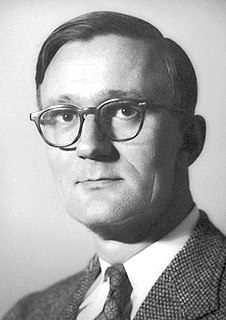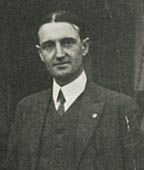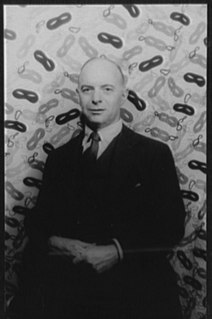A Quote by Henri Frederic Amiel
[I]t is truth alone-scientific, established, proved, and rational truth-which is capable of satisfying nowadays the awakened minds of all classes. We may still say perhaps, 'faith governs the world,'-but the faith of the present is no longer in revelation or in the priest-it is in reason and in science.
Related Quotes
But science can only be created by those who are thoroughly imbued with the aspiration toward truth and understanding. This source of feeling, however, springs from the sphere of religion. To this there also belongs the faith in the possibility that the regulations valid for the world of existence are rational, that is, comprehensible to reason. I cannot conceive of a genuine scientist without that profound faith. The situation may be expressed by an image: science without religion is lame, religion without science is blind.
The truth is that my work - I was going to say my mission - is to shatter the faith of men here, there, and everywhere, faith in affirmation, faith in negation, and faith in abstention in faith, and this for the sake of faith in faith itself; it is to war against all those who submit, whether it be to Catholicism, or to rationalism, or to agnosticism; it is to make all men live the life of inquietude and passionate desire.
Belief, as I use the word here, is the insistence that the truth is what one would "lief" or wish it to be. The believer will open his mind to the truth on condition that it fits in with his preconceived ideas and wishes. Faith, on the other hand, is an unreserved opening of the mind to the truth, whatever it may turn out to be. Faith has no preconceptions; it is a plunge into the unknown. Belief clings, but faith lets go.
Faith is not an art. Faith is not an achievement. Faith is not a good work of which some may boast while others can excuse themselves with a shrug of the shoulders for not being capable of it. It is a decisive insight of faith itself that all of us are incapable of faith in ourselves, whether we think of its preparation, beginning, continuation, or completion.
Nominally a great age of scientific inquiry, ours has become an age of superstition about the infallibility of science; of almost mystical faith in its non-mystical methods; above all-which perhaps most explains the expert's sovereignty-of external verities; of traffic-cop morality and rabbit-test truth.
Faith in the continuance and enhancement of the intrinsic values--faith in truth, in beauty, in friendship, in love and harmony of life--in short, faith in reason and the worth of spiritual life--such faith is only another name for faith in the persistence of spiritual individuality. For, I repeat, these values are real only as functions of personal experience and deed. To have faith in the permanence of intrinsic values is to assume the enduring reality of selves who know truth, feel beauty, who love and win spiritual harmony.








































